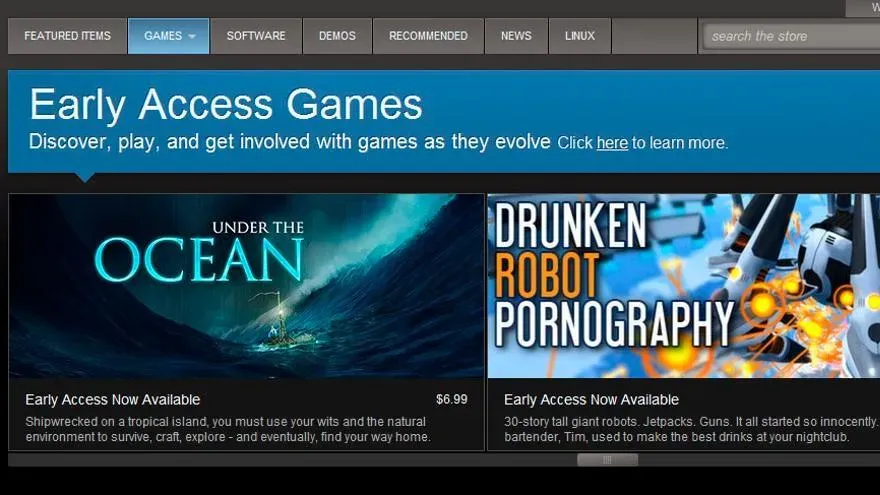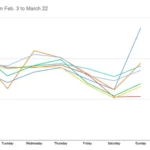Steam early access offers a unique opportunity for gamers and developers alike, allowing players to dive into the game development process before a title’s official launch. This innovative program has propelled several early access games to success, with notable examples including the critically acclaimed Hades and the highly anticipated Baldur’s Gate 3. However, the journey through early access isn’t always smooth; many titles struggle to garner attention or progress, often remaining in limbo without a clear path to completion. To address these challenges, Steam has recently implemented warnings for users on early-access game pages if developers fail to provide timely updates, ensuring players are informed about the status of their favorite titles. With Valve’s commitment to enhancing the early access experience, both developers and players can look forward to a more transparent and engaging game development landscape.
The concept of early-stage game releases, often referred to as pre-release titles or beta games, has gained traction in the gaming community. These platforms allow players to engage with games that are still in development, providing valuable feedback that can shape the final product. Although many developers benefit from this model, not all projects see the light of day, as some remain stagnant without meaningful progress. Recent Valve announcements have highlighted the importance of developer communication, leading to new warning systems for games that lack updates. This evolution in the early access model aims to enhance player experience while encouraging developers to actively engage with their audience.
Understanding Steam’s Early Access Program
Steam’s early access program is a revolutionary platform that allows game developers to share their projects with players before the official launch date. This approach has transformed game development, offering developers a unique opportunity to gather feedback, make adjustments, and enhance the overall player experience prior to final release. By releasing games in early access, titles like Hades and Baldur’s Gate 3 successfully engaged their communities, leveraging player input to refine gameplay mechanics and fix bugs ahead of their full launch.
However, while many developers embrace early access as a valuable tool, not every project achieves the same level of success. The reality is that a significant portion of early access games struggle to progress past the initial development stage. Some titles linger in an unfinished state, often referred to as development purgatory, leaving players frustrated and questioning the viability of the game. This inconsistency highlights the importance of effective communication and commitment from developers during the early access phase.
The Benefits of Early Access Games for Developers
For developers, the early access model presents numerous advantages that can significantly impact their projects’ success. Firstly, it allows for real-time feedback from a dedicated player base, helping developers identify issues and areas for improvement that may have gone unnoticed during internal testing. This feedback loop is invaluable, as it enables developers to prioritize updates and enhancements based on actual player experiences, ultimately leading to a more polished product by the time of the official launch.
Additionally, early access can provide crucial financial support for indie developers, as it allows them to monetize their games before full release. This early revenue can be reinvested into the game’s development, ensuring that resources are available for necessary enhancements. Games like Hades have demonstrated how successful early access can be, turning a once-niche model into a mainstream approach that benefits both players and creators alike.
Challenges Faced by Early Access Titles
Despite the potential benefits, early access games face numerous challenges that can hinder their success. A significant concern is the risk of developers abandoning their projects, leaving players with incomplete or unsatisfactory experiences. The gaming community often expresses frustration when they invest time and money into a title that fails to receive updates or support, leading to a lack of trust in the early access model as a whole. This issue has prompted platforms like Steam to introduce warnings for players about games that have not been updated in a while.
Moreover, the variability in quality among early access titles can be daunting for players. While some games may offer an engaging experience, others may feel unpolished or lack substantial content. This inconsistency can deter potential players from trying out new early access games, as they may fear investing in a title that does not live up to their expectations. Developers must therefore be mindful of maintaining quality and communication throughout the early access process.
Valve’s Recent Announcements Regarding Early Access
In light of the challenges faced by early access games, Valve has taken steps to improve the experience for players and developers alike. Recently, they began implementing warnings for users visiting the pages of early access titles that have not received updates for an extended period. This initiative aims to protect players from investing in projects that are unlikely to be completed, fostering a more transparent environment on the platform.
Although Valve has not made this change a formal announcement, the move has been highlighted by industry observers and confirmed by reputable sources like Eurogamer and PC Gamer. This proactive approach by Valve reflects their commitment to ensuring that early access remains a beneficial avenue for game development while mitigating the risks associated with unfinished projects. By keeping players informed, Valve hopes to enhance trust in the early access model and encourage developers to remain engaged with their audience.
The Impact of Player Feedback on Game Development
Player feedback plays a pivotal role in the success of early access games, shaping everything from gameplay mechanics to overall design. Developers who actively engage with their community are often able to make significant improvements based on the suggestions and critiques they receive. This collaborative approach not only enhances the game but also fosters a sense of ownership and investment among players, making them feel like they are part of the development journey.
As seen with successful titles such as Hades and Baldur’s Gate 3, incorporating player feedback can lead to a more refined and enjoyable gaming experience. These games have thrived due to their developers’ willingness to listen to their audience, adapting their designs to meet player expectations. This underscores the importance of maintaining an open dialogue between developers and players throughout the early access process.
Navigating the Early Access Landscape
For gamers, navigating the early access landscape can be both exciting and overwhelming. With a plethora of titles available, it can be challenging to discern which games are worth investing in and which may fall short of expectations. Players must do their research, checking for developer updates, community feedback, and overall game quality before committing their time and money.
Additionally, understanding the nature of early access is crucial. It is important for players to recognize that early access games are works in progress, meaning they may contain bugs or incomplete features. Setting realistic expectations can enhance the early access experience, allowing players to appreciate the development journey rather than focusing solely on the final product.
The Future of Early Access Games
As the gaming industry continues to evolve, the future of early access games remains a topic of interest among developers and players alike. With the increasing popularity of this model, it is likely that more developers will explore early access as a viable option for funding and community engagement. This trend could lead to a greater diversity of games entering the market, catering to various tastes and preferences.
However, the challenge of maintaining quality control will remain paramount. Developers must prioritize transparency and communication with their player base to build trust and ensure a positive early access experience. The continued success of early access games will depend on the industry’s ability to adapt and learn from past experiences, ultimately creating a more robust and enjoyable gaming landscape.
The Role of Community in Early Access Success
Community engagement is a cornerstone of early access success, as players often provide invaluable insights that can shape the direction of a game. Developers who actively listen to their community can make informed decisions about gameplay mechanics, storylines, and overall design. This collaborative approach not only enhances the game but also fosters a loyal player base that feels connected to the development process.
Moreover, a strong community can serve as a powerful marketing tool for early access titles. When players are enthusiastic about a game, they often share their experiences on social media and gaming forums, generating buzz and attracting new players. This organic promotion can be instrumental in helping a game gain traction in a crowded market, ultimately leading to a successful full launch.
Learning from Successful Early Access Titles
Studying successful early access titles can provide valuable lessons for both players and developers. Games like Hades and Baldur’s Gate 3 have set a high standard for quality and community engagement, demonstrating the importance of listening to player feedback and incorporating it into the development process. These titles have shown that when developers prioritize communication and responsiveness, they can create a more enjoyable experience that resonates with players.
Additionally, the success of these games underscores the potential benefits of early access as a funding model. For indie developers, early access can be a lifeline, allowing them to generate revenue that can be reinvested into their projects. By examining the strategies employed by successful early access games, developers can better navigate the challenges of the model and increase their chances of achieving a successful launch.
Frequently Asked Questions
What is Steam’s early access program?
Steam’s early access program allows developers to release their games to players before the official launch. This initiative enables developers to gather valuable feedback from players during the game development process, which can lead to improvements and refinements based on community input.
How do early access games like Hades benefit from player feedback?
Early access games such as Hades benefit significantly from player feedback, allowing developers to make adjustments and enhancements in response to user experiences. This collaborative approach can lead to a more polished final product and can help ensure that the game meets player expectations upon full release.
Are all early access titles on Steam successful?
No, not all early access titles achieve success on Steam. While some games, like Baldur’s Gate 3, have garnered significant attention and praise, many others struggle to make progress and may even remain in development purgatory indefinitely without reaching completion.
What warning does Steam provide for inactive early access games?
Steam has implemented a warning system for early access games that have not received updates from developers in a significant amount of time. This feature is designed to inform users about the status of these games, helping them to make informed purchasing decisions.
What role does Valve play in Steam’s early access program?
Valve, the company behind Steam, oversees the early access program and provides the platform for developers to launch their games. Valve’s announcements and updates regarding the program can impact how developers engage with their audience and manage their early access titles.
Can players influence the development of early access games?
Yes, players can actively influence the development of early access games by providing feedback, suggestions, and reporting bugs. This interaction between the community and developers is crucial for shaping the game and enhancing its features based on player preferences.
What should I consider before purchasing an early access game on Steam?
Before purchasing an early access game on Steam, consider the game’s current state, developer activity, and community feedback. Check for recent updates and read reviews to gauge whether the developer is committed to completing the game and addressing player concerns.
Why do some early access games remain unfinished?
Some early access games remain unfinished due to various reasons, including lack of funding, insufficient player interest, or the complexity of development. Developers may struggle to balance feedback with their original vision, which can lead to delays or abandonment of the project.
What are some popular examples of successful early access games on Steam?
Popular examples of successful early access games on Steam include Hades and Baldur’s Gate 3. Both titles have received critical acclaim and leveraged community feedback to refine their gameplay, ultimately leading to successful full launches.
How can I find the latest Valve announcements regarding early access games?
To find the latest Valve announcements regarding early access games, keep an eye on the Steam blog, official social media channels, and gaming news platforms. These sources often provide updates and insights about changes and features within the early access program.
| Key Point | Description |
|---|---|
| Early Access Program | Allows developers to release games before official launch to gather player feedback. |
| Successful Titles | Games like Hades and Baldur’s Gate 3 benefited from early access, improving upon player feedback before full release. |
| Challenges | Many early access titles do not reach success and may remain in development indefinitely. |
| User Warnings | Steam now warns users about early access games that haven’t been updated by developers in a long time. |
| Confirmed by Sources | The warning feature was highlighted by SteamDB and confirmed by Eurogamer and PC Gamer. |
Summary
Steam early access allows developers to get their games into players’ hands before the official release, fostering community engagement and feedback. While it has led to successful titles, many games struggle to progress, highlighting the importance of regular updates. The new warning system implemented by Steam serves as a helpful tool for players, ensuring they are aware of potential stagnation in the development of early access games.








